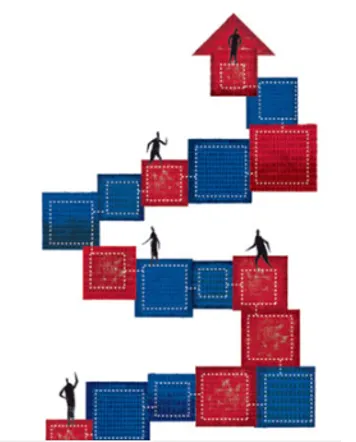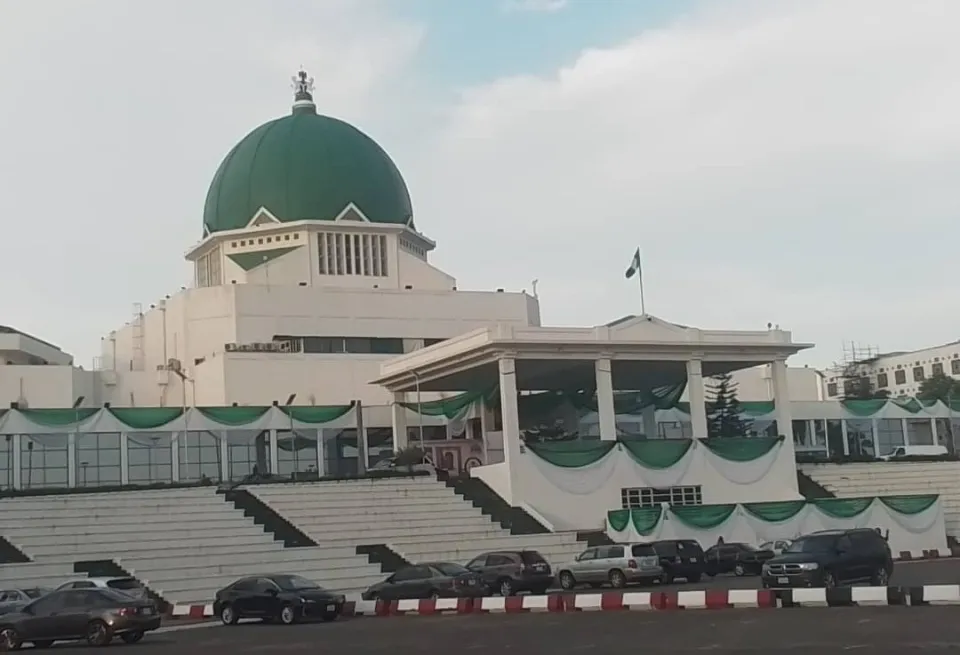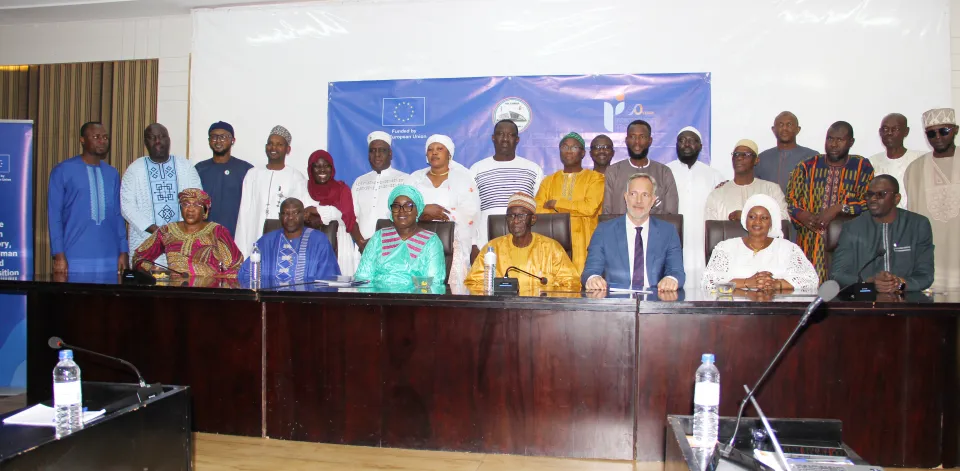
National democratic elections are unquestionably expensive. This fact is beyond dispute.
Administrative costs alone add up to hundreds of millions of dollars (US) per election in many countries around the globe. Added to this are the costs of political campaigns, expanded media coverage, additional security, and special election dispute resolution mechanisms. Depending on the societal context, there may be significant supplementary costs associated with public education on electoral rights and obligations, national advertising providing election process information to citizens, the operation of domestic and foreign election observation programs, and procedural and financial audits associated with an election.
Various political actors in different countries regularly make claims that their national elections have become unaffordable. Or they may state that the costs of holding elections can no longer be sustained, given other public spending priorities. Sometimes these are justified criticisms of the administrative methods used by their country’s election management body (EMB), which bears legal responsibility for the conduct of national elections. Other times they might be the expression of a sincere desire for a country’s electoral system legal framework to be simplified and made less costly to implement. But more often they are thinly veiled arguments suggesting significant efficiencies are available by moving toward, or sliding back to, an authoritarian style of governance that has no requirement for genuinely contested elections.
For those who support and wish to safeguard democracy it is imperative to ensure criticisms regarding election costs are publicly debated and placed in a context based on facts, law and agreed societal values. Ideally, such a debate will change the cost narrative and help move a nation’s electoral democracy in the direction of evolution, not devolution. Democracy is broadly defined as a political system that advances popular control and political equality—“government of the people, by the people, for the people”. However, democracy is not associated with a single applicable model, and debates encouraging the continual evolution of how each country’s democracy works should be embraced. Such evolution can include the adoption of features that change the cost model associated with the periodic conduct of public elections.
This article explores four themes that can help develop an informed narrative about election costs.
1. Elections are an investment, not an expense
Election costs are about more than just a tally of the public funding required to conduct an electoral event, where voters are thought of as consumers and election officials are providers of a public service. Election expenditures are funding much more than just a process where ballots are issued and marked by citizens, and votes are counted and tabulated by election officials.
Election costs are about funding a central governance activity within an overarching system that provides a society with a stable and inclusive democracy. For the 62 percent of the world’s population that now live within a democratic nation, election costs should be thought of as the public investment that is necessary to ensure popular control over public decision-making and decision makers—citizens exercising their power through the ballot box. Furthermore, the investment also guarantees political equality among the citizens who exercise that control—one person, one vote.
Periodic elections are an institutionalized governance feature in each nation that has chosen democracy to define their form of government. Upholding the conduct of periodic and genuine elections becomes an obligation under international law for those nations. For example, certain democratic guarantees are binding on all United Nations member states. These are articulated in both Article 21[1] of the 1948 Universal Declaration of Human Rights, and Article 25[2] of the 1966 International Covenant on Civil and Political Rights. Both can be described as foundational legal commitments that require free and fair elections to be held on a regular basis.
Of course, regular, free and fair elections are not the only essential component of a democracy nor are they the only element involving significant public costs. Other important components include personal and political freedoms, the rule of law, checks on government power, protection of human rights, and the active participation of citizens in politics and civic life.
The ‘return on investment’ that is associated with democratic and inclusive elections, supported by other key components of a democracy, can be measured in terms of social stability within a nation. By contrast, countries that underfund investments in their democracy tend to be associated with:
- ineffective public administration (including election administration);
- low levels of voter turnout;
- high levels of election fraud, manipulation and voting irregularities;
- limited freedom for news media to scrutinize the exercise of power;
- inconsistent access to justice, civil liberties, social rights and equality;
- corruption and unequal enforcement of laws; and
- public dissatisfaction with political parties, legislatures and governments.
The funding of national electoral processes is unquestionably the responsibility of the national government of each country that calls itself a democracy. Dependence on funding from donor countries, or the international community, should be avoided. Election financial assistance by donors should always be considered temporary, even though it may be necessary during post-conflict or transitional periods.
2. Cost-effective election preparation and delivery requires continuous and adequate funding of a nation’s EMB
Modern public elections are massively complex events with immense logistical challenges. They are frequently described as the largest peacetime activities ever undertaken within a nation. Yet often the EMB that is legally mandated to administer the election is not sufficiently funded to build the capacity it requires to professionally plan and prepare the election process it must deliver.
Perhaps this is due to a public and political perspective that elections are quite simple activities. From the voters’ perspective, an election simply involves attending an assigned voting location, obtaining a ballot, marking it behind a voting screen and then ensuring it gets inserted into the appropriate ballot box. Later there is usually an optional process of listening to or watching media coverage on the election results. From the politicians’ perspective, the election process primarily involves getting candidate nomination papers submitted, raising campaign funds, appealing to voters in the electoral jurisdiction to provide their voting support, and then mobilizing supporters to ‘get out the vote’.
What is not recognized is that these seemingly simple processes must be supported by trained staff in every community, and that the entire election process is required to happen within the exact same timeframes and in strict compliance with election laws, regulations and policies. Moreover, the staff that are providing services to candidates, voters and media representatives are invariably temporary staff, most of whom will never have worked as an election official before.
Most EMBs grow exponentially in terms of their temporary staff complement at each election. It is not unusual for EMBs to grow to more than 800 times their permanent staffing levels at each election. And most of the temporary staff hired will work exactly one day: Election Day.
Simply ensuring that a sufficient number of adequately skilled personnel are recruited to fill local election worker positions in every community, and making sure they are each appropriately trained to perform their official roles is, in itself, an immense challenge. To be effective, and to minimize unnecessary expenditures and achieve the best possible efficiencies, requires planning and preparations that need to begin years in advance of the election day.
The same level of detailed planning and preparation is required to provide cost-efficient procurement of election supplies, locations and services; warehousing preparation and storage of ‘kits’ of supplies per field office; development, testing, and final configuration of supporting processes and technology; physical distribution and electronic communication networks; election publicity and voter education programs; stakeholder support and engagement; issues management methods, policies and procedures.
Added to this, there are usually requirements for the ongoing management of a register of eligible voters and preparations for significant registration update activity prior to each election. Plus, there is often a possibility of changing boundaries for electoral constituencies, potential modifications to electoral laws and an ever-changing set of public expectations regarding the delivery of voting services that additionally need to be accommodated.
Recognizing the immensity of the election administration task is usually accompanied with an understanding that it requires extremely detailed planning and highly disciplined preparation to be done efficiently and effectively, ensuring maximum value is derived from each dollar spent.
However, in many cases, EMBs in countries that present larger-than-average logistical challenges in providing inclusive, accessible nation-wide voting processes are the very ones that are severely underfunded until the year of an election. This means that they are unable to develop the capacity to undertake competitive procurement of the goods and services that are required at election time, cannot build the recruitment and training programs needed to ensure sufficient numbers of competent temporary election officials, and typically find themselves in ‘fire fighting’ mode when scrambling to deliver a prescribed election process to the public. Massive last-minute expenditures are often associated with these kinds of elections, usually without the degree of scrutiny that is associated with other large public spending outlays. The temptation for successive governments is to continue these election funding arrangements—as little money as possible in non-election years, and as much as is necessary in an election year. Such an approach fails to recognize the value of planning and encourages wasteful and inefficient expenditures at election time.
Public administration scholars sometimes reference periodic election events as an example of a ‘portfolio’ of numerous large, interconnected, complex, time-constrained public projects, all driven by statutorily fixed delivery dates. Project management courses will often characterize this discipline as the art of carefully balancing three interrelated factors: time, money and quality. Constraints placed on one factor have inevitable consequences for the other two factors. For example, moving a project deadline to an earlier date will require additional funding or a compromise in quality, or both. Improving the quality of project deliverables will require additional time, or additional funding, or both.
If a country wishes to have high quality, high integrity public elections that are held on schedule for a reasonable price, they need to allow the EMB sufficient time to properly plan and prepare for each election. That, in turn, requires the EMB to be continuously and sufficiently funded to undertake the necessary planning and preparation. Over time, an EMB will develop the capacity to perform these functions with increased efficiency and professionalism, lowering overall administration costs while ensuring the delivery of high quality election processes.
3. EMBs require financial independence as well as legal independence
In most of the world’s democracies, the responsibility for administering elections has been legally assigned to a permanent, independent EMB. These institutions are independent from the executive branch of government in recognition that the conduct of elections should not be influenced or controlled by the elected representatives who hold power. It has become a widely accepted ‘best practice’ that electoral authorities be professional, competent, non-partisan, and politically independent.
Other EMB models either involve elections being organized by an autonomous electoral authority within government, or by having election administration handles directly by the executive branch. The general global trend, however, sees increasing movement toward establishing independent election commissions that are not controlled by the executive branch, with legal requirements for professional, competent electoral administration that has full independence of action.
Too frequently, however, this legal independence is not accompanied with financial independence. EMBs are often subject to the same government financial allocation rules that pertain to any other publicly funded organization. The executive branch of government can thereby limit access to funds requested by an EMB, and can easily characterize allocation cuts in the name of spending controls, fiscal austerity or prudent financial management. The reality, however, is that if the funding that an EMB has identified as necessary becomes unavailable, it can result in serious compromises in their capacity to deliver a cost-efficient, high integrity election. The problems associated with insufficient funding in non-election years, discussed in the previous section, can all recur when an EMB does not enjoy financial independence as a component part of its overall legal status.
Not funding an EMB to properly plan and prepare for a fully inclusive election can easily be motivated by partisan interests. Sometimes it is advantageous for incumbent elected representatives of a governing party to minimize voting participation in a pending election. Their political logic might suggest they can win the election if they can mobilize their supporters get out to vote, while non-supporters face administrative obstacles or have insufficient information to become informed voting participants.
Whenever it is granted, EMB financial independence carries heightened responsibility for providing transparent accountability regarding the expenditures that are made. Independence and accountability are often seen as the two sides of a coin that a legally and financially independent EMB is formally issued when it is established as an institution of governance and a custodian of electoral democracy.
Financial accountability must be demonstrated through transparent financial operations, structured and fair procurement processes, and detailed public reporting on all expenditures related to election administration.
4. Election costs can vary dramatically from region-to-region and from one election to the next
Around the globe, election costs are frequently measured in terms of the cost per voter. Those reported figures can range from as low as three dollars (US) per voter to over 200 dollars (US) per voter. But context matters, as do accounting methods.
The cost of an election in a post-conflict era will usually be significantly more expensive that one following 30 years of peace. Costs can be expected to increase when the risk of election-related violence is high or levels of public trust in electoral processes are low. Nations that undertake transitional elections, while moving from an authoritarian to a democratic system, will invariably have election costs that are substantially higher than those found in well-established democracies, largely because of reduced election security costs and increased levels of trust placed in electoral processes over time.
As well, the cost between one election and the next can vary substantially within the same jurisdiction. For example, some established democracies are currently spending far more on election security compared to the past, in direct response to terrorism and perceived risks of attacks being made at political rallies or toward candidates or voting officials. As well, numerous countries are now investing heavily in cybersecurity because they are treating their election systems as part of the ‘critical infrastructure’ of their nation, and the threat of foreign election hacking has become tangible. This may well result in subsequent elections in these countries being considered far costlier than was previously the case.
No general agreement has been established in the election administration community, or the international democracy support community, as to what should be categorized as an election cost and what should not. Some jurisdictions do not include any of the costs of EMB central administration as an election cost, and only start to tally expenses once an election campaign period begins. Others include all costs that are even tangentially associated with the election, such as increased security by police and military, the provision of free broadcasting time to registered political parties and candidates, additional time spent by the judiciary resolving election disputes, and every aspect of multi-year EMB costs associated with planning, preparing and delivering the election. Many variations exist between these two widely differing approaches. Standards for election cost accounting have simply not been established at the international level, and categories of public election cost reporting differ greatly between nations.
As a result, reported election costs must be considered carefully to ensure inappropriate and misleading comparisons are not made. Additionally, it must be understood that many of the costs of an election will be directly related to the specific features of the electoral system that a country has chosen. Ultimately, the choice of electoral system features is a sovereign decision made by a country’s citizens, or delegated to its elected representatives. While decisions on electoral system design are usually the result of a broad-based societal consensus, this does not mean that the features of electoral democracy cannot or should not evolve over time. Many countries have modified their electoral arrangements using binding citizen referendums.
If minimizing electoral costs is a strongly held desire of a society, electoral system design features could be selected that would have the effect of reducing administrative costs. While the world has yet to experience a referendum on electoral system change motivated by a public desire for election cost reductions, this does not mean it will not or cannot happen. In a political system where the people govern themselves, problems can always be addressed democratically.
This International IDEA feature story was prepared by electoral management consultant, Harry Neufeld, as part of an Expert Working Group Workshop on Costs, Finanace and Financing of Elections on 20-21 November in Stockholm, Sweden. For more information about the workshop, see Electoral processes: an investment, not a cost.
For more information about this topic, please contact Erik Asplund at e.asplund@idea.int or Rumbidzai Kandawasvika-Nhundu at R.Kandawasvika-Nhundu@idea.int.
[1] UDHR Article 21. (1) Everyone has the right to take part in the government of his country, directly or through freely chosen representatives. (2) Everyone has the right of equal access to public service in his country. (3) The will of the people shall be the basis of the authority of government; this will shall be expressed in periodic and genuine elections which shall be by universal and equal suffrage and shall be held by secret vote or by equivalent free voting procedures.
[2] ICCPR Article 25. Every citizen shall have the right and the opportunity, without any of the distinctions mentioned in article 2 and without unreasonable restrictions: (a) To take part in the conduct of public affairs, directly or through freely chosen representatives; (b) To vote and to be elected at genuine periodic elections which shall be by universal and equal suffrage and shall be held by secret ballot, guaranteeing the free expression of the will of the electors; (c) To have access, on general terms of equality, to public service in his country.



